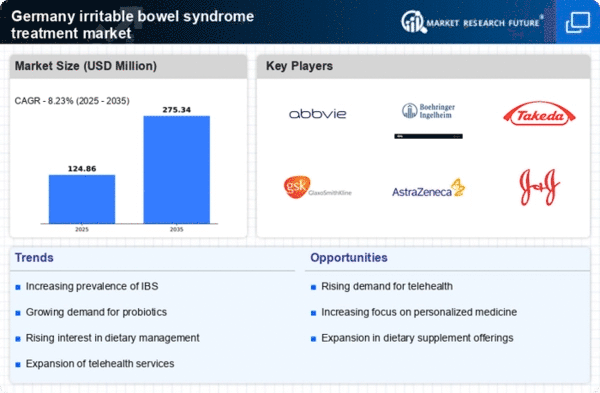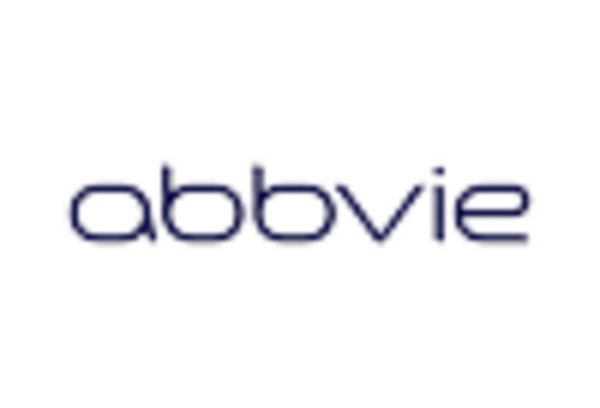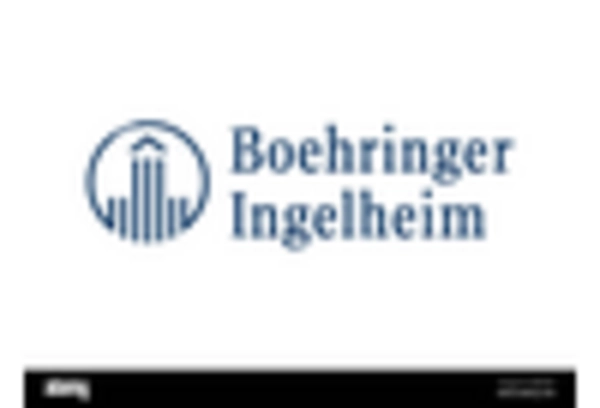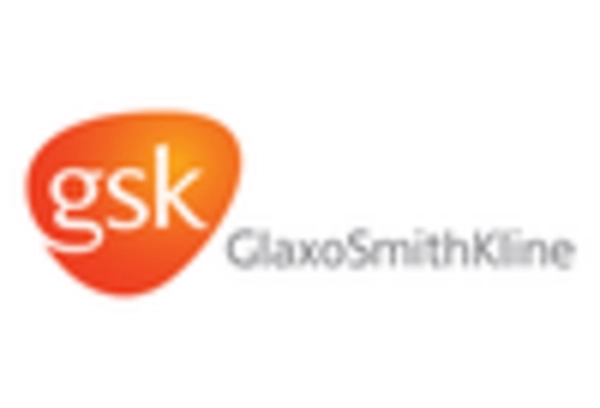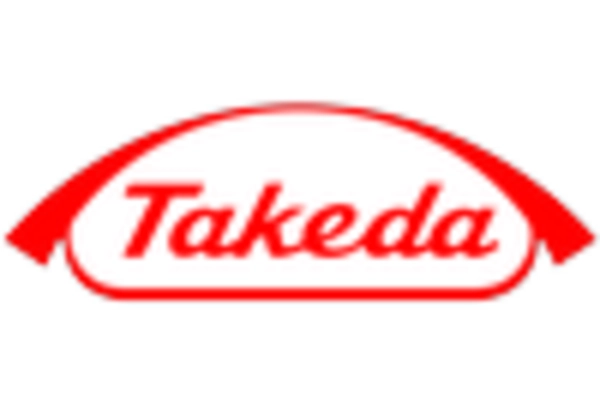Rising Prevalence of IBS
The increasing prevalence of irritable bowel syndrome (IBS) in Germany is a significant driver for the irritable bowel-syndrome-treatment market. Recent studies indicate that approximately 10-15% of the German population experiences IBS symptoms, leading to a growing demand for effective treatment options. This rise in cases is attributed to various factors, including dietary changes and heightened stress levels. As awareness of IBS expands, more individuals seek medical advice, thereby propelling the market forward. The healthcare system is responding by enhancing diagnostic capabilities and treatment accessibility, which further stimulates market growth. Consequently, pharmaceutical companies are investing in research and development to create innovative therapies tailored to the unique needs of IBS patients, thereby expanding their market presence.
Growing Awareness and Education
The growing awareness and education surrounding irritable bowel syndrome (IBS) are pivotal drivers for the irritable bowel-syndrome-treatment market. Initiatives by healthcare organizations and patient advocacy groups in Germany aim to educate the public about IBS symptoms, triggers, and available treatments. This increased awareness encourages individuals to seek medical help, leading to higher diagnosis rates. As more patients become informed about their condition, the demand for effective treatment options rises. Additionally, healthcare providers are increasingly incorporating IBS education into their practice, which further supports patient engagement and adherence to treatment plans. This trend is likely to foster a more proactive approach to managing IBS, ultimately benefiting the treatment market.
Integration of Telehealth Services
The integration of telehealth services is transforming the irritable bowel-syndrome-treatment market in Germany. With the rise of digital health solutions, patients can now access healthcare professionals remotely, facilitating timely consultations and follow-ups. This shift is particularly beneficial for individuals with IBS, who may experience discomfort in traditional clinical settings. Telehealth services enable patients to receive personalized care from the comfort of their homes, thereby increasing treatment adherence and satisfaction. Moreover, healthcare providers are leveraging telehealth platforms to monitor patient progress and adjust treatment plans as needed. As telehealth continues to gain traction, it is expected to enhance the overall accessibility and efficiency of IBS treatment, contributing positively to market growth.
Advancements in Pharmaceutical Research
Innovations in pharmaceutical research are playing a crucial role in shaping the irritable bowel-syndrome-treatment market. The development of new medications, including novel pharmacological agents and biologics, is expected to enhance treatment efficacy and patient outcomes. In Germany, the approval of new drugs has been accelerating, with several therapies entering the market in recent years. This influx of new treatments provides healthcare professionals with a broader range of options to address the diverse symptoms of IBS. Furthermore, clinical trials are increasingly focusing on personalized medicine approaches, which may lead to more effective and targeted therapies. As a result, the market is likely to witness a surge in demand for these advanced treatment modalities, reflecting the ongoing commitment to improving patient care.
Increased Investment in Gastroenterology
The increased investment in gastroenterology is a notable driver for the irritable bowel-syndrome-treatment market. In Germany, healthcare systems are allocating more resources to gastrointestinal research and treatment facilities, recognizing the growing burden of digestive disorders, including IBS. This investment is reflected in the establishment of specialized clinics and research centers focused on gastrointestinal health. Additionally, funding for clinical trials and innovative treatment approaches is on the rise, fostering advancements in IBS therapies. As a result, patients are likely to benefit from improved access to cutting-edge treatments and comprehensive care. This trend not only enhances the treatment landscape for IBS but also positions the market for sustained growth in the coming years.


